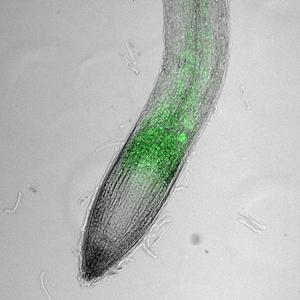
The density of chain grocery stores has increased globally by 23.6 percent over 15 years (from 2009 to 2023). People in countries with the most chain grocery stores per person buy more unhealthy food and are more likely to be obese.

University of Queensland researchers have for the first time introduced genetic material into plants via their roots, opening a potential pathway for rapid crop improvement.

Korean scientists have recently cultured a beef rice—by growing animal muscle and fat cells inside rice grains. The method results in a nutritious and flavorful hybrid food that could offer a smaller carbon footprint.

Researchers have successfully bulk-produced fat tissue in the lab that has a similar texture and make-up to naturally occurring fats from animals.

The idea that food delivers important messages to our genome is the focus of a field known as nutrigenomics.

A company in California, U.S has found a way to make milk without the cow, created solely in a lab with zero cruelty but all the nutrition. The company now have an array of products that they state are just as good as the original.

The world’s largest urban rooftop farm in Paris has started to bear fruit. Rooftop farming is a clean, productive and sustainable model of agriculture that can in time make a real contribution.

In a society that equates beauty with quality, the perception that blemished produce is less desirable than its perfect peers contributes to 1.3 billion tons of wasted food a year globally. Researchers are looking at the potential solutions.

Scientists have discovered the specific gene that controls an important symbiotic relationship between plants and soil fungi. The discovery could lead to the development of bioenergy and food crops that can withstand harsh growing conditions.

A new study suggests that globally we're growing more of the same kinds of crops, and this presents major challenges for agricultural sustainability on a global scale.

Most crops on the planet are plagued by a photosynthetic glitch. U.S. researchers have engineered crops with a photorespiratory shortcut that are 40 percent more productive in real-world agronomic conditions.

Scientists in Germany have figured out a way to identify male eggs prior to hatching, which eliminates need for live culling.

If everyone in the world were to eat the recommended amount of vegetables, fruit, and protein, there wouldn't be enough to go around. This finding comes from a new Canadian study.

Eating more organically grown foods is linked to a 76 percent decreased risk for all lymphomas and an 86 percent reduced risk for non-Hodgkin lymphoma, French researchers say.

Unless we make some changes, the environmental impacts of the food system could increase by 50 to 90 percent in the next 20 years and the planet will not be able to support our skyrocketing population.